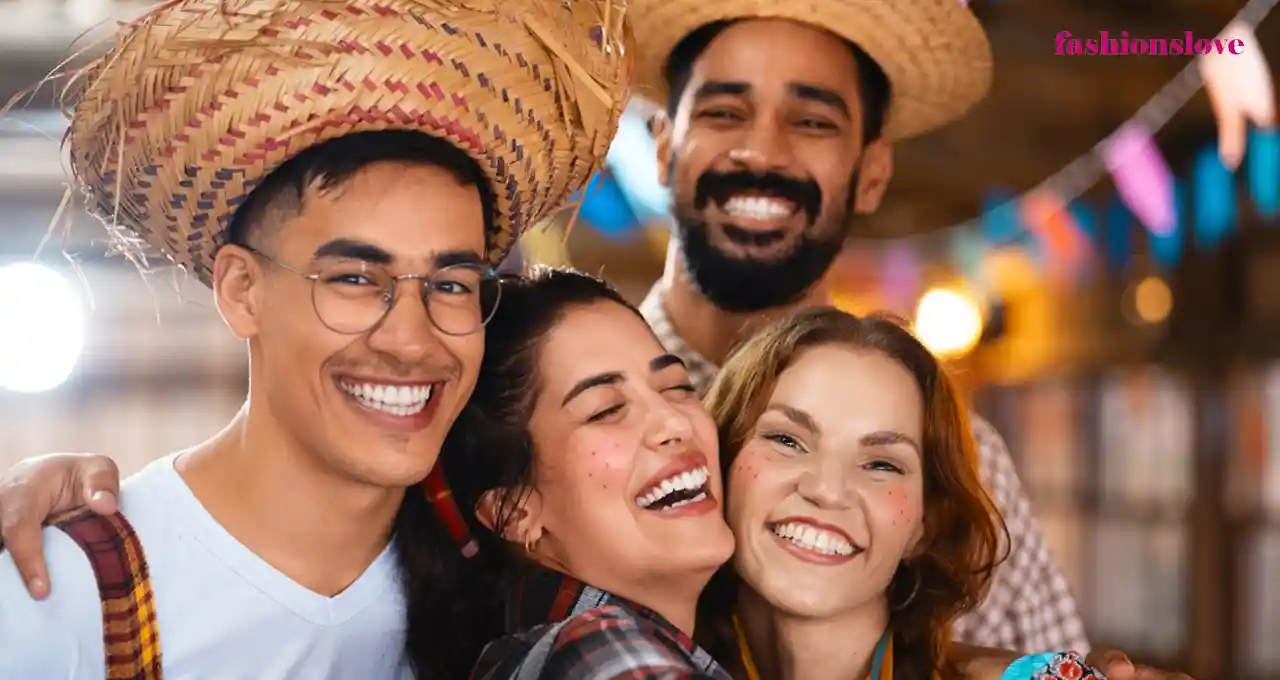Exploring What Are American Traditions Today
Culture isn't about museums, monuments, or history books; it is lived each day in the little choices, with family moments and the rituals that help bring people together. American conventions are unique since they blend old values with the modern twists. From quirky holiday habits to immortal family gatherings, these are the traditions that reflect the playful, adaptable, and expressive spirit of culture in the US.
The Heartbeat of American Traditions
American traditions are not just events on a calendar; they are stories that are told through food, music and togetherness. Just think about the Thanksgiving table, stuffing, turkey and pies, where families stop to reflect on the appreciation. Or picture the Fourth of July, fireworks lighting the sky to the fullest, while neighbors gather for barbeques. These are the moments that aren't just customs; they are living threads that help stitch the nation's story together.
Everyday Culture in the US
Culture in the US is a cocktail of impacts, immigrant roots, local creativity, and shared values. You’ll see it in the rhythm of daily life: Sunday family brunches, school spirit events, or indeed the way communities celebrate little victories together. American family culture emphasizes appearing up, whether it’s cheering at a little league game or attending a backyard barbecue. The goal is always connection.
American Style in Traditions
Traditions often reveal a part about American style, easygoing, casual, yet intentional. From wearing themed pajamas on Christmas morning to rocking team jerseys during the Super Bowl, style blends fun with meaning. It’s less about looking polished and more about almost expressing identity while feeling part of a collective celebration.
Holiday Traditions in the US
Holiday traditions in the US often showcase creativity and warmth. Halloween, with its costumes and candy, is almost as much about neighbors bonding as it is about treats. Christmas lights, Hanukkah candles, and New Year’s countdowns each bring families closer. These traditions highlight the bliss of pausing normal life to celebrate togetherness.
The Blend of US Customs and Identity
US customs often balance formality and informality. For example, graduation ceremonies feel serious and proud, while tailgate parties scream casual fun. This balance keeps life dynamic. The traditions of the US also reflect adaptability, what begins as a small community practice can evolve into a nationwide custom. Pumpkin spice lattes may have started as a trend, but they’ve now become an autumn ritual.
Examples of American Traditions
|
Tradition |
When It Happens |
Cultural Meaning |
|
Thanksgiving Dinner |
November |
Gratitude, family connection |
|
Fourth of July |
July 4th |
Independence, national pride |
|
Halloween |
October 31st |
Community fun, creativity |
|
Super Bowl Sunday |
February |
Unity, shared excitement |
|
Graduation Ceremony |
Spring/Summer |
Achievement, milestones |
The Role of American Family Culture
Within American family culture, grooming, hosting, and even how you set the dinner table reflect deeper values. It’s not about showing off but about respect. A child bringing a handmade card on Mother’s Day, or grandparents telling old stories at Christmas, shows how traditions carry care and identity across generations. These small rituals reinforce bonds that modern life often tries to pull apart.
Why American Traditions Matter Today
In this era, traditions act as anchors. They also help people remind themselves of who they are and where they come from. For someone asking, "What are American traditions?" the reply is not one-size-fits-all. They're as varied as the people themselves, regional, cultural, and personal. They make a sense of belonging, weaving millions of stories into a shared narrative.
Conclusion
American traditions continue to evolve, but their essence remains: togetherness, identity, and expression. Even through US customs like graduation or holiday traditions in the US such as Thanksgiving, where each ritual tells a cultural story. These are the practices, whether casual or formal, lively or profound, that shape the rhythm of life. American traditions remind us that the culture isn't just static, it's lived every day with the fashion, care and connection.
FAQs
1. What are American traditions that families follow most?
Families often celebrate Thanksgiving, Christmas, and the Fourth of July, with traditions like family meals, fireworks, and storytelling passed down generations.
2. How do traditions of the US contrast from other cultures?
The traditions of the US are unique because they combine influences from diverse immigrant backgrounds while including modern, creative twists over time.
3. Why are occasion conventions in the US important?
They provide moments of stop and joy, helping families reconnect and communities strengthen bonds while celebrating values like gratitude and unity.
4. How has culture in the US formed advanced traditions?
Culture in the US has energized innovation, blending old practices with new ones. From sports events to food rituals, traditions evolve while staying meaningful.
